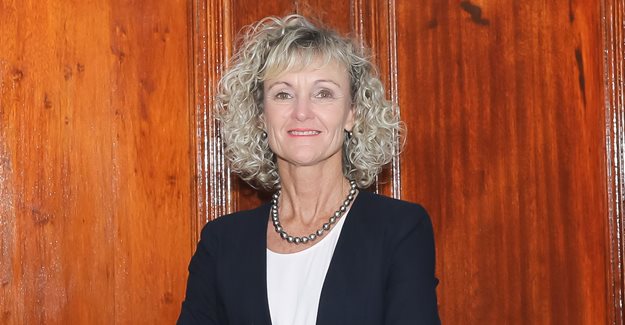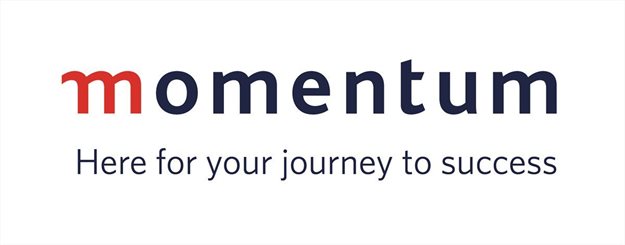
Elmarie Coetzee
Is it possible to ‘learn’ how to be successful? In Stephen R. Covey's book, The 7 Habits of Highly Effective People, which has remained a best-seller for over 25 years. It suggests that you can learn habits to make yourself more effective.
Does the same apply to success? Can a person ‘learn’ to be successful, or do you need to be born with the innate potential to be successful? The University of Michigan offers a course through Coursera called ‘The Science of Success – what Researchers know’. Paula Caproni, course instructor, writes in her book with the same title that one can learn what predicts success in life and learn strategies for success.
She says that one of the most important things one should learn is that “success is earned day-by-day through small wins – small, achievable actions that together can help you achieve your goals sooner and exceed even your own expectations”. Her book shows that researchers agree that concepts such as ‘overnight success’, ‘born leaders’ or ‘natural talent’ are misleading and counterproductive.
Instead, researchers agree that we need to see things differently, to see this topic in a different way. “What looks like innate talent is usually the result of years of dedicated time and effort. Indeed, it typically takes years of mindful, deliberate practice for one to develop what looks like natural ability”. In this case, the science is in the combination of time and effort. If this innate talent is coupled with good advice that is applied well over a sustained period of time, these little micro wins can accelerate your journey to success.
Elmarie Coetzee, Human Capital executive at Momentum Corporate, did her PhD on coaching as strategy for leadership development in an ever-changing context. She found that people can indeed learn to improve on their journeys to success. Leadership effectiveness or success, and hence organisational success, are direct results of leader-context best fit. Elmarie explains this concept: “Our context has changed dramatically over the past years and more so with Covid-19. The context is characterised by uncertainty and turbulence. To succeed in this new context, leaders require different characteristics, such as mental agility to optimise emerging opportunities and an innate ability of seeing the upside of a world that has been turned upside – down. A leader’s adaptability enables him or her to have emergent strategies to cope better and engage more effectively with changing circumstances and contexts.”
Your mind set may be the biggest factor obscuring opportunities that are in plain sight.
Research has shown that success or failure cannot be attributed to only inherent ability or (in)competence. Coetzee’s research showed that one needs to look at this systemically: “Things are not polar opposites or ‘either/ or’, but rather ‘both/and’. Many factors play a role. However, what I find most liberating, is that a person’s mindset, or thoughts and beliefs, will be the biggest determinant of the outcome, and most importantly, that a person has a choice about what their mindset should be.”
There is much written on mindset and success. Mindset is revolutionary. Carol Dweck, renowned psychologist who is known for her work on mindset, referred to mindset as ‘the new psychology of success’. “How would you respond if you knew that success or failure mostly depended on what you personally believed about the future? Your mindset is another ingredient in the formula to shaping your future,” says Coetzee. “A fixed mindset can hold you back, and a growth mindset can give you momentum.”
Success is not by chance, get to know the path from a Fixed to a Growth mindset.
She explains that a fixed mindset means that the person’s beliefs are fixed, cast in stone. They may have a belief that they are smart or not. Their thoughts are perhaps: ‘Look smart, don’t look dumb. Prove yourself to be smart.’ They see themselves either as winners or losers. They think that what happens to them is a direct indication of who they are and they often prefer not to explore new things or to see different angles of a life challenge, because effort, risk and at times resultant failure, only show their incompetence. They are fixed in their beliefs.
A person with a growth mindset believes that they can learn, grow and develop. They are curious, open to learn new things and observing others to learn from. They believe that they can change and they approach challenges with passion and energy. People with a growth mind set are progressive optimists that put habits in place that assist them in sustaining future success. They define those deliberate actions that they need to practice continuously for success to evolve systemically. They also believe that their true potential is not cast in stone, and are open to fresh perspectives, as they navigate the things that are in and outside their financial control.
Coetzee highlights that ‘growth’ through traditional development that focusses only on skills, knowledge and competencies, will not be enough. “Our world views (mental models) inform the way we think and perceive the world, ourselves as well as success. To succeed, one needs to think differently in a more systemic, complex and interdependent way. If I look at the world in a linear manner where the focus is on cause and effect, I will try to fix it, in a mechanical way, the cause of not achieving success. After all, it is a problem that needs to be fixed. However, if I look at the world in a more systemic way, I look at the interconnected patterns and the opportunities to co-create new possibilities. Success is then not static, nor is it a pre-defined path. It is evolving over time and I can co-create success with others. There could be multiple ways and options to achieve success. Your thinking then immediately shifts from limiting beliefs to growth with possibilities – so much more empowering!” Coetzee exclaims.
Six ways of how to grow a successful mind set.
Coetzee shares how we can help develop ourselves on our journey towards success:
- Success is about stretching yourself. Challenge and effort enable growth and change. Connecting with people that stretch you and grow you is important. Including more views and multiple stakeholders broadens your view or “reality” of success. Ask continuously: what can I do better, differently.
- The power of belief will determine what you achieve and what you will focus on. What do you believe about yourself? How do you see your intellect, attributes, personality? Self-insight or self-awareness (knowing your strengths and weaknesses) is key for success. Build your identity toolkit to amplify and utilise your strengths and manage the weaknesses that may trip you up.
- Practice a mindset and self-talk to turn a failure into a gift. Mistakes and getting it wrong is learning, not failure. View challenges as opportunities.
- Seek constructive feedback. How can I use this for a basis of growth? See feedback is a gift to enable me on my journey of success.
- Develop resilience in the face of setbacks. Building resilience enables you to deal with setbacks which are part of personal excellence. Keep the big picture in mind and cultivate a sense of purpose.
- Remind yourself that developing abilities and achieving success take time and do not happen quickly as a single event. A good example is Thomas Edison and the light bulb. Although we may think that he on his own had one day a bright moment and there it was… the truth is that he was not a loner. He worked for years with the best scientists of this time. It was not a single moment of brilliance or invention.
As South Africa’s leading financial services provider, Momentum believes that people can learn to be successful. It is now no longer a philosophical ideal, it has become necessary for all of us to develop our own science of success. This, a principle and purpose of the brand, displayed through a number of brand initiatives, one of which is the Momentum Science of Success Festival, is taking place on the 25 November. This festival is a culmination and sharing of the research insights from the Momentum/UNISA Household Financial Wellness Study. Nine years into this relationship, the Momentum/UNISA Household Financial Wellness Report aims to unpack the turbulent economic environment that surrounds South African households, factors that affect the financial success in households, the impact of Covid-19 on household finances and behaviours and give practical tips for recovery and acceleration towards financial success.

For more information check out www.momentum.co.za or follow the official social media pages:
#SuccessIsAScience
Facebook: MomentumZA
Twitter: @Momentum_za
Instagram: momentumza
























































